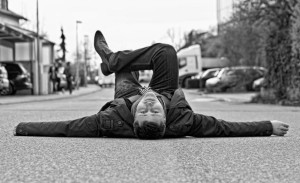From Your Minister
April 1, 2016Podcast: Download (Duration: 5:34 — 5.1MB)
Subscribe: More
 Now that I’m an adult, I can see that my father was jealous of my older brother. An only child himself, he was used to having the full attention of his parents, and then his wife. And suddenly my mother was putting a huge amount of her attention somewhere else. My older brother was my father’s rival, his enemy, and was treated as such until my brother ran away at 18.
Now that I’m an adult, I can see that my father was jealous of my older brother. An only child himself, he was used to having the full attention of his parents, and then his wife. And suddenly my mother was putting a huge amount of her attention somewhere else. My older brother was my father’s rival, his enemy, and was treated as such until my brother ran away at 18.
As a kid, I watched in bewilderment as my father showered rage on my brother. Though I, the third child, did not suffer nearly the anger and abuse from my father that my brother did, I could never breathe easily in the family. This early experience taught me in my very cells that “no one is free while others are oppressed” —words I’ve seen attributed to Martin Luther King, Jr., Mohandas K. Gandhi, Mother Teresa, and Anonymous.
Thus, for me, the path to my own freedom has always been to work toward freedom for everyone. I know in my cells that hiding under the covers in my bedroom does not ease the tension in my body and spirit when I can hear screaming outside my door. Although my father is gone, I have continued to hear those screams, in my own psyche and in my interactions with the world around me.
It’s taken me decades to accept that the majority of people appear genuinely comfortable with the decision to stay in their own room and ignore (or truly not hear) the screams of others. It’s not about privilege, either. I’ve seen oppressed people cling to the tiny bit of freedom they have like a security blanket, refusing to challenge the powers that be in fear that their tiny bit will be taken away. And I’ve seen highly privileged people risk a great deal for the common good.
So I’m puzzled about this choice, whether or not to use whatever limited power is available to take a step forward, to squint into the rubble and discern or imagine a path that just might possibly lead to freedom. I wonder if this is about innate personality or environment or some combination of the two.
Definitely, people with harder lives have to learn to be more resilient than those who live in bubbles of privilege; they have to learn to “make a way out of no way,” as African-American wisdom puts it. Some oppressed people manage to stay firmly centered in the collective purpose of moving towards freedom, even when simple personal survival could legitimately use every skill at hand. These are the artists of freedom, the ones who build freedom out of whatever materials they have on hand. They are the leaders I’ll trust for these times we’re in.
For now, I’ve decided that it really doesn’t matter why some people exert courageous leadership and others don’t. For now, I simply recognize that significant movement on the path towards freedom depends on strong leaders with the ability to not only see a path but to make others believe in it as well. And when I witness such leadership, I harness myself to it and offer my own gifts and talents to move with it. I have been wildly privileged in my life to meet artists of freedom again and again. I’ve learned enough from watching them that, when I can’t find another Artist of Freedom nearby, I can summon up my own limited abilities to create a path.
“I have been to the mountaintop,” Dr. King declared, in his last public speech before he was assassinated. “I may not get there with you, but I want you to know that we as a people will get to the Promised Land.” And because of the integrity of his life, people believed him, and walked with him in the direction he pointed.
I have been most inspired by the artists of freedom who create a pathway even when denied almost every access point to action. A white friend, with Chronic Fatigue Syndrome and very limited energy, just decided to go to the library and sit outside with books about racial justice, encouraging patrons to check them out and read them. The sign above her reads: “White people! What are you doing to stop our legacy of racist violence?”
Or the prisoner member in solitary confinement, taking a CLF course where he was asked to focus on a source of life nearby. He wrote that all he could find that was alive in his cell were some ants, so he focused on them and learned. Even in solitary confinement he was able to find some freedom to grow and connect with a broader sense of life.
May we each claim our power—imperfect and limited as it may be—to serve as an artist of freedom, to dare to create a way forward. We might just be the missing puzzle piece that the world needs!
- From Your Minister - July 1, 2020
- From Your Minister - June 1, 2020
- From Your Minister - May 1, 2020
Quest Monthly Print Edition
Recent Issues
Latest Spiritual Reflection Posts
Weekly Newsletter
About
Quest for Meaning is a program of the Church of the Larger Fellowship (CLF).
As a Unitarian Universalist congregation with no geographical boundary, the CLF creates global spiritual community, rooted in profound love, which cultivates wonder, imagination, and the courage to act.
Contact
Church of the Larger Fellowship Unitarian Universalist (CLFUU)
24 Farnsworth Street
Boston MA 02210

